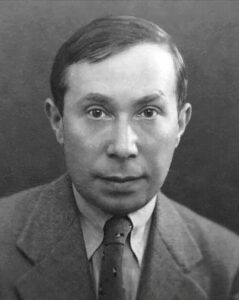Sobre Apología y Critón Strūthiō 004
Parte de:
«Sobre la Apología de Sócrates y el Critón de Platón» / I

Leōnardus Strūthiō (1899-1973)
ĒRVDĪTIŌRIBVS ***
Tabla de contenidos
Versiō hispānica Aemiliā Aquadītī auctrīce 4
Como sabemos por Sócrates, la audiencia estaba familiarizada con la primera acusación por intermedio de Las nubes de Aristófanes, que lo presentaba haciendo muchas cosas ridículas, de las cuales él no entiende nada. Sócrates no menosprecia este tipo de conocimiento —lejos de ello—, pero no lo posee. No deja tan en claro, como podría haberlo hecho con facilidad, si considera un desatino ridículo o algo respetable el conocimiento poseído por el Sócrates aristofánico. Por supuesto, guarda absoluto silencio acerca del hecho de que Aristófanes lo ha presentado como si negara la existencia de los dioses. En consecuencia, pide al jurado, el cual está bajo el hechizo de un prejuicio inveterado, que se libere de este y crea en el testimonio de sus sentidos: deberían decirse unos a otros si alguna vez lo han oído conversar sobre temas de esta índole, porque muchos de ellos lo han escuchado hablar en el mercado, junto a las mesas de los cambistas; sin embargo, Sócrates también hablaba «en otros lugares», cuando muchos de ellos no lo oían (cf. 17c7-9). Con seguridad, su conocimiento sobre lo que Sócrates conversaba no había hecho, hasta entonces, la más mínima mella en su prejuicio.
Sócrates dedica dos veces más de tiempo o espacio a refutar la acusación o el rumor de que está enseñando a otros, que a refutar el cargo de que investiga las cosas de debajo de la tierra y las cosas celestiales y de que hace más fuerte el discurso más débil, y ello, a pesar de que ese rumor no es un rumor generalizado. Procede tal como Jenofonte en los Memorabilia, que dedica mucho más espacio a refutar la increíble acusación de corrupción que a refutar la más creíble acusación de impiedad. El Sócrates de Platón analiza el rumor de que intenta educar a los seres humanos y de que cobra dinero por ello. Una vez más, niega lisa y llanamente que sea cierto lo que se dice de él; pero en esta ocasión no pide a los miembros del jurado que se pregunten unos a otros si alguna vez lo han oído (o visto) tratar de educar a seres humanos y cobrar dinero por ello; tales transacciones pueden ser estrictamente privadas. Elogia la nobleza de lo que Gorgias, Pródico e Hipias —«sofistas» extranjeros— hacen o intentan hacer, y muestra por qué su arte, que aspira a la producción de la virtud tanto del ser humano como del ciudadano, merece ser ensalzado. No menciona a Protágoras. Y siembra ciertas dudas sobre la posibilidad de ese arte: no ha hecho lo mismo acerca de la posibilidad del estudio de las cosas de lo alto y otras análogas.
Perge ad initium paginae huius
Leōnardī Strūthiōnis verba 4
As we learn from Socrates, the first accusation was familiar to his audience from Aristophanes’ Clouds in which he was presented as doing many ridiculous things—things of which he understands nothing. He does not despise this kind of knowledge—far from it—but he does not possess it. He does not make it as clear as he easily could have made it whether he regards the knowledge possessed by the Aristophanean Socrates as ridiculous non-sense or as respectable. He is of course completely silent about the fact that Aristophanes had presented him as denying the existence of the gods. Accordingly he asks the jury who are under the spell of an inveterate prejudice to free themselves from that prejudice by trusting the testimony of their senses: they should tell one another whether they have ever heard him conversing about subjects of this kind, for many of them have heard him talk in the market place, at the money changers’ tables; yet Socrates also talked “elsewhere” when he was not heard by many of them (cf. 17c7-9). Surely their knowledge of what Socrates conversed about had not hitherto made the slightest dent on their prejudice.
Socrates devotes twice as much time, or space, to the refutation of the charge or the rumour that he is others as to the refutation of the charge that he investigates the things beneath the earth and the heavenly things and that he renders the weaker speech the stronger, and this despite the fact that that rumour is not a general rumour. He proceeds like Xenophon in the Memorabilia, who devotes much more space to the refutation of the incredible corruption charge than to the refutation of the more credible corruption charge than to the refutation of the more credible impiety charge. Plato’s Socrates discusses the rumour according to which he attempts to educate human beings and charges money for it. Again he flatly denies the truth of what is said about him. But this time he does not ask the jury to tell one another whether they have ever heard (or seen) him attempting to educate human beings while charging money for it; such transactions may be strictly private. He praises what Gorgias, Prodikos and Hippias—alien “sophists”—do or attempt to do, as noble, and he shows why their art aiming at the production of the virtue of the human being as well as of the citizen deserves being praised. He does not mention Protagoras. He casts some doubt on the possibility of that art: he had not cast any doubt on the possibility of the study of the things aloft and the like.
Perge ad initium paginae huius
Iūra
El texto en lengua inglesa fue publicado de manera póstuma en un volumen en honor al prof. Jacob Klein: Essais in Honor of Jacob Klein (Annapolī, ē Typographeō Acadēmīae Sānctī Iōhannis MCMLXXVI). Aunque nosotros tomamos como base lo aparecido en una antología dedicada a escritos del prof. Strūthiō en inglés en 1983: Studies in Platonic Political Philosophy (Sicagī, ē Typographeō Ūniversitātis Sicagī MCMLXXXIII). La versión castellana es obra de Aemilia Aquadīs, aparecida en la traducción del volumen mencionado anteriormente (Bonāeropolī, ē Typographeō Amōrrortī MMVIII). La publicación de estos fragmentos promueve la difusión en castellano de la obra del profesor Leōnardus Strūthiō con fines académicos y de formación. Conminamos a visitar su biblioteca más cercana o adquirir el volumen físico en su librería de confianza.

Perge ad initium paginae huius
ĒRVDĪTIŌRIBVS ***
